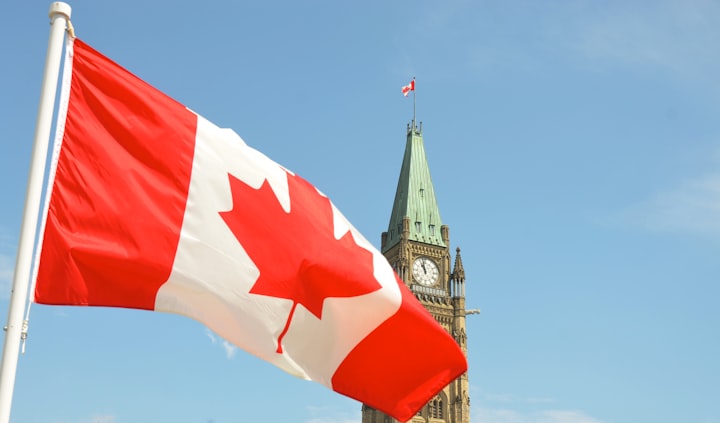The Myth of Canadian Superiority
Canadians like to tell themselves they are better than Americans. Is this historically accurate?

As a Canadian born long after America’s supposed “Golden Age,” I have grown up with the celebrated notion of Canadian superiority. In school, well-meaning teachers bragged about the inherent multiculturalism of Canada, referencing famous Prime Minister Pierre Trudeau’s famous Multiculturalism Act when discussing the legacy of racism in the United States. Canada was designated as some sort of shining beacon for anti-racism and inclusion, while the US was its wayward, bigoted neighbour.
Outside the classroom, Canadians unwittingly and sometimes knowingly perpetuate the widespread belief in Canada’s moral superiority, often after interacting with Americans either in real life or through consuming popular culture. Perhaps because Canadians are almost indistinguishable from the vast majority of Americans in terms of accents (contrary to what is espoused on American comedy sketch shows, where characters speak in dialects I’ve never even heard before), we feel the need to identify ourselves as not American so as not to be associated with the negative stereotypes that come with being from the US. Whenever we do meet Americans who fulfill those classic stereotypes attributed to American tourists, we internally applaud ourselves for being so much more self-aware, more racially sensitive, and more socially progressive.
After the 2016 election, the myth of Canadian moral superiority skyrocketed. We watched the debates between Donald Trump and Hilary Clinton from our living room sofas with horrified amusement, posting on social media about how regressive American society was becoming. At least our politicians aren’t racist, we thought to ourselves back then. When the COVID-19 pandemic hit, Canadians watched as deaths in the States spiralled out of control while many still refused to wear masks or follow basic safety guidelines, once again confirming the alleged superiority of our nation.
The Underground Railroad
Unsurprisingly, the myth of Canadian moral superiority runs deep. At the heart of this myth lies the history of the Underground Railroad and Canada’s relationship to slavery in the US. As a British colony known as British North America, slavery was essentially abolished in Canada with the British Empire’s Act for the Abolition of Slavery of 1833. From this point on, Canada came to be the so-called promised land for enslaved people in the United States, who risked their lives to escape the subjugation of slavery by crossing the border.
Abolitionists swiftly established a system of safe houses to aid fugitives in making it either across the border or to the northern states were slavery was illegal. This system came to be known as the Underground Railroad. After the Fugitive Slave Act of 1850, which allowed for the capture of escaped enslaved persons living in northern states, making it to British soil became critical.
While the Underground Railroad expanded, Anglo-Canadian bureaucrats used the issue of slavery to assert Canadian moral superiority over the United States. After America’s defeat of England in the American Revolution and its designation as an emerging world power, British politicians exploited the issue of slavery to assert a sense of ascendancy. Evidence of this notion of ascendancy can be seen in the many legal battles between Canada and the United States concerning the extradition of enslaved persons.
For instance, in 1853, when an enslaved Black man from Missouri named John Anderson killed a slave owner in the process of his escape in order to avoid capture, his extradition was requested by the United States government. On both sides of the argument, British and Anglo-Canadian lawmakers used Anderson’s plight to both emphasize the evil of the United States government in protecting the institution of slavery and the supremacy of equal British justice. Remarkably, Justice McLean highlighted the irony of the American Constitution, where “all men are born equal and possessed of certain inalienable rights,” and yet Black men like Anderson were excluded from this promise.
Throughout the nineteenth century, Canadian abolitionist newspapers depicted Canada as the true land of freedom, equality and prosperity. While it is certainly true that Canada initially acted as a refuge for formerly enslaved persons, this image seems to minimize the more grim reality of Canada’s Black communities.
Fact or Fiction?
In addition to countless atrocities done to the Indigenous peoples of Canada — including genocide, dispossession, assimilation attempts by the government, residential schools, and more recently, the “Sixties Scoop,” where Indigenous children were forcibly placed in European-Canadian homes — the lives of early Black settlers evidence the deception evoked by the Canadian superiority myth.
Once arrived in Canada, Black families and individuals encountered serious challenges, often rooted in racism.
In historian Kristin McLaren’s excellent article, the myth of Canadian egalitarianism comes under fire when examined against the backdrop of institutional racism in Canada. Although many Black immigrants viewed Canada as a haven from racism, likely hearing rumours of British equality themselves, they soon discovered that Anglo-Canadians held the same racist attitudes as their American counterparts.
Though insisting upon their belief in equality and stubbornly defending the superior morality of the British Empire, Anglo-Canadians at a town council meeting in Chatham, Ontario, expressed virulent, racist attitudes about Black newcomers, insisting upon their exclusion from local schools. White inhabitants of the area claimed they were worried their children would be “negatively influenced” by Black children. Through proclaiming the deeply racist belief that Black people were somehow inferior, these inhabitants defended their insistence on keeping Canadian schools segregated. It was almost the nineteenth-century equivalent of saying: “I’m not racist, but…”.
As a result, Black immigrants indeed established their own schools. Despite many historians arguing these schools were segregated by choice, McLaren successfully proves they were opened because of racist exclusion from mainstream schools. Interestingly, the schools opened in Ontario by Black teachers were open to students of all races, further disproving the “segregation by choice” theory. These Black educators advocated for integration. Eventually, some non-Black families began sending their children to Black-run schools because of the excellent standards of education that were maintained there.
In addition to educational segregation, Black newcomers faced (and still do face) many other obstacles after arriving in Canada, including being excluded from labour unions and forced to work in dangerous conditions. The reality of anti-Black racism never ended at the border, contrary to the myth of Canadian moral superiority that persists in the collective Canadian consciousness.
Final Thoughts
This is not to make light of the very real inequalities specifically endured by Black Americans. Nor is it to provide the United States with a sense of innocence. It is simply important to remember, as Canadians, we have our own historical and current injustices to grapple with.
In no way can Canadians claim to be morally superior when we are guilty of many of the same injustices as our American counterparts. Doing so prevents us from taking responsibility for our own biases and issues, deterring our ability to move onto a more inclusive future.
About the Creator
Ilana Quinn
I am a student who loves writing about history, travel, faith and life experiences. Feel free to check out more of my writing at https://linktr.ee/ilanaquinn :)






Comments
There are no comments for this story
Be the first to respond and start the conversation.